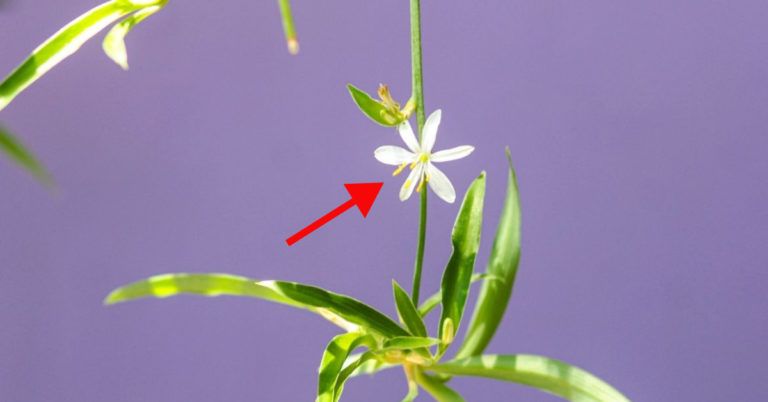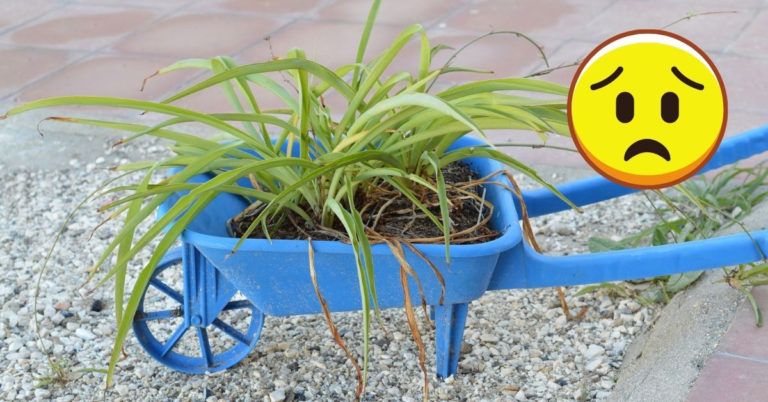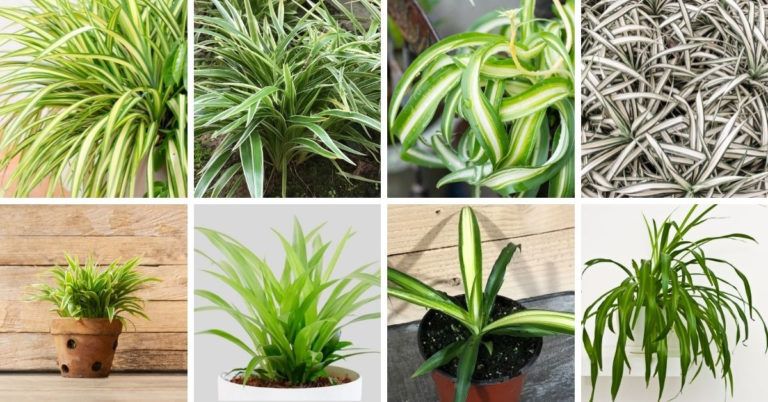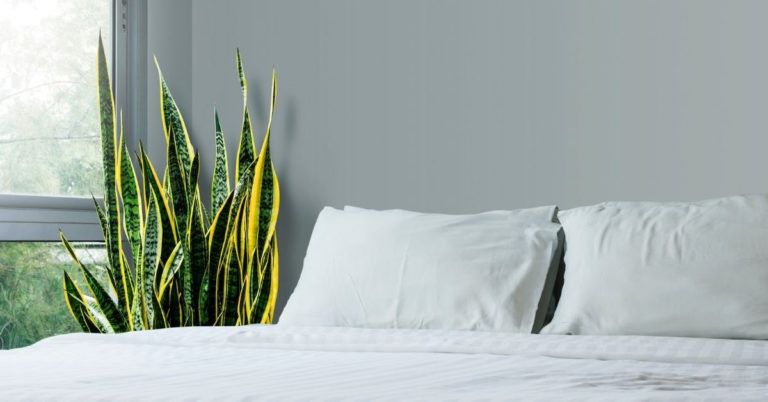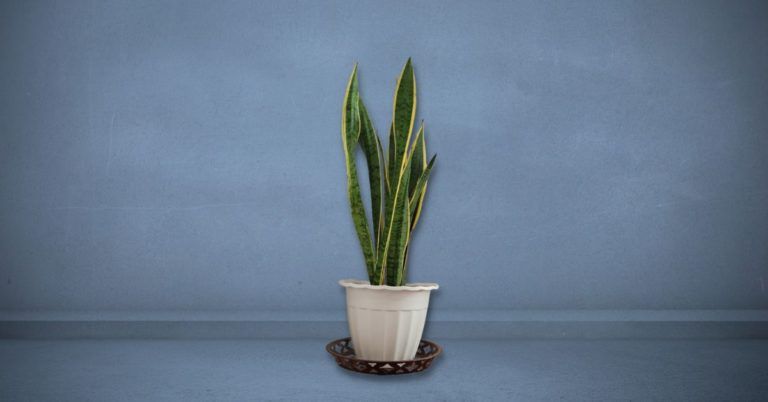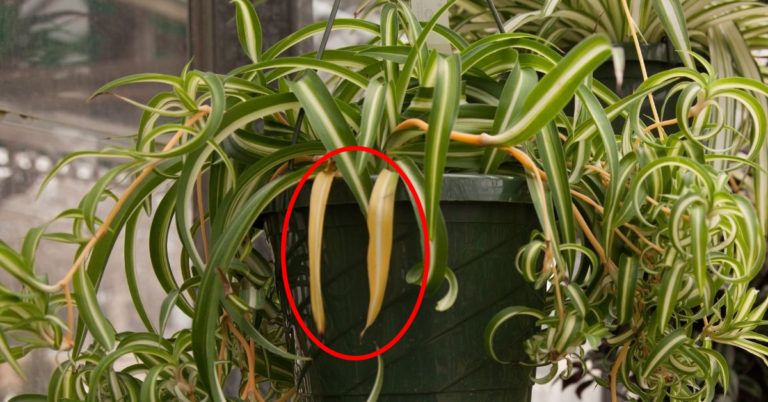Are Spider Plants Pet Safe? (Revealed)
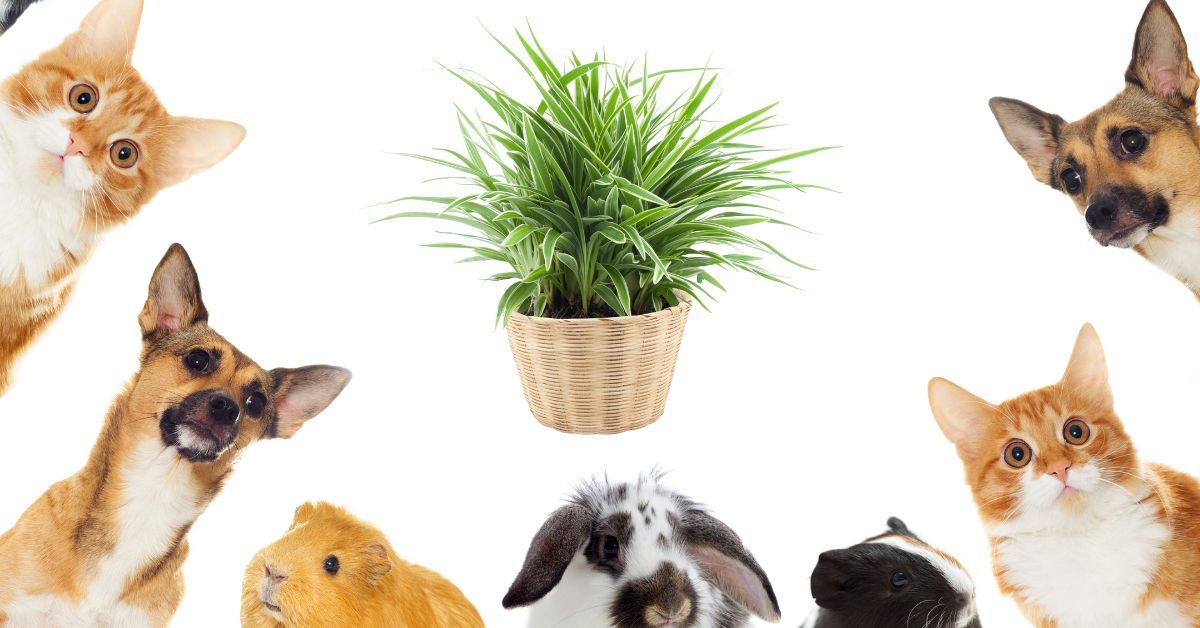
You may have heard about spider plants if you are a plant enthusiast.
Spider plants are commonly found around the world as houseplants.
But are spider plants safe for pets?
In general, yes, spider plants are safe for pets!
Additionally, from being pet-friendly, spider plants are also easy to grow.
They are often recommended to beginners who are starting out on their plant-caring journey.
But how safe exactly are spider plants for your pets?
Are there any side effects your pets will get by eating them?
Well, keep reading, as you may learn something interesting!
Are spider plants pet-friendly?
Yes, spider plants are pet friendly.
But not all houseplants are safe for pets.
Many common houseplants are actually harmful to your pets.
Thankfully, the spider plant is not one of them.
According to the ASPCA, spider plants are safe for your pets, including cats and dogs.
In other words, you don’t have to worry about your spider plant poisoning your beloved pet.
So what are these harmful plants?
Some of these harmful plants include philodendrons, jade plants, and chrysanthemums.
If you have these plants in or outside your home, be sure to keep them away from your pets.
If any of these harmful plants are accidentally eaten, it could cause serious problems to your beloved animal.
While spider plants may be safe for pets, they may cause some problems for your cat.
You see, cats tend to behave differently when interacting with spider plants.
Cats are also more likely to take a bite out of your spider plant than dogs.
So, what happens if your cat starts to eat parts of your spider plant?
Will something bad happen?
What should you do in case your cat (accidentally) eats one?
What happens if a cat eats a spider plant?
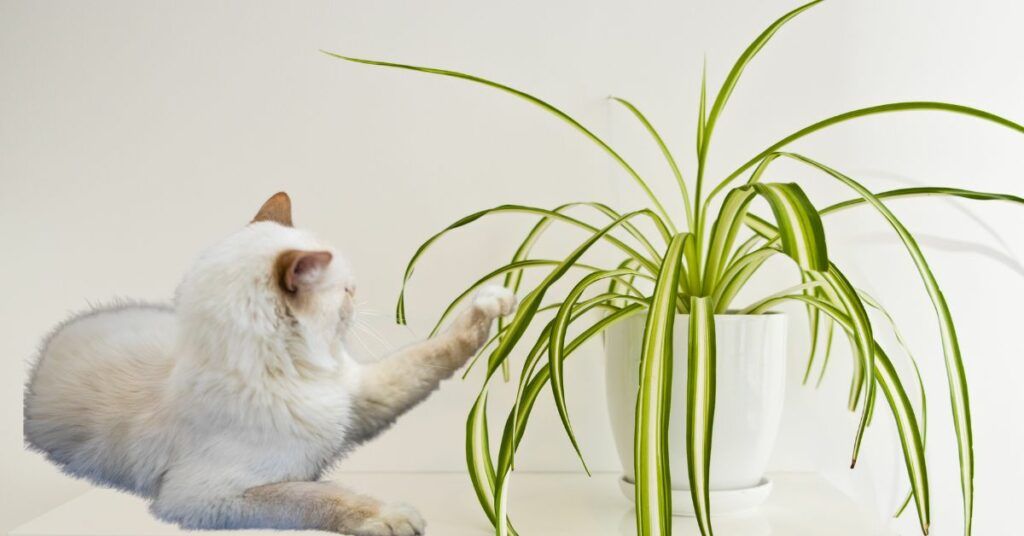
Generally, eating small amounts of spider plant leaves won’t harm your cat.
However, too much spider plant can cause issues such as vomiting, diarrhea, and an upset stomach in your cat.
This is why you should not let your cat eat your spider plant.
So then, what can you do to keep your cat from getting to your spider plant?
The first thing you can do is hang your spider plant out of reach.
Spider plants are often hung from baskets from the ceiling.
Move the spider plant to a place where your cat cannot reach it.
This is ideally a place without any objects or furniture that your cat can climb to get to your spider plant.
However, if you do not have any safe spot to hang your spider plant, you can use bitter repellent spray on the leaves.
These sprays are commonly used to prevent insects from settling on leaves.
But, they can also be used to keep your cat from biting the leaves of your spider plant.
Granted, it’s not as effective as hanging your spider plant in a secure spot.
However, it should keep your cat from biting the leaves of your spider plant and falling sick from it.
The last thing you can try is planting some indoor grass.
If your cat has a habit of biting on plants, planting indoor grass is a great way to satisfy your cat’s itch to chew on leaves.
You can place your spider plant in a group with other plants as a last resort.
This lowers the chances of your cat finding your spider plant and instead playing with the other plants.
Aside from your cat getting diarrhea and stomach ache, are there other effects of eating a spider plant?
It turns out, yes, there is another effect.
And it only appears to affect cats.
Why do spider plants get cats high?
Spider plants do more than just give your cats an upset stomach.
Spider plants also contain chemicals that are similar to opium. This is the main reason why cats are attracted to spider plants.
When cats taste a spider plant leaf, they become addicted and are more likely to try them again.
After eating a spider plant’s leaves, your cat can become wide-eyed and behave weirdly.
Essentially, spider plants are like catnip.
Some cats may not react to spider plants; others may grow attracted to them and get high.
But, as we said earlier, cats eating spider plants should generally not cause problems for them.
But if your cat eats too much spider plant leaves, it can cause vomiting, diarrhea, and an upset stomach in them.
For safety measures, keep your spider plants away from your cats.
As said previously, this includes hanging your spider plant out of reach, planting indoor grass, or spraying bitter repellant on the leaves.
Conclusion
Spider plants are houseplants found worldwide.
They are known for being easy to grow.
Thankfully, spider plants are not toxic to your beloved pets.
But cats do seem to be affected by it in certain ways.
If your cat eats too much spider plant leaves, it can cause diarrhea, vomiting, and an upset stomach.
Therefore, keeping your spider plant out of the cat’s reach is best.
Aside from vomiting, eating spider plants can have another effect on cats.
Spider plants contain chemicals that are similar to opium.
These chemicals cause the above symptoms in your cats but also make them high.
In short, spider plants behave similarly to catnip.
Some cats will feel nothing; others will go high after tasting them.
Therefore, keeping your spider plants away from your beloved cats is important.
